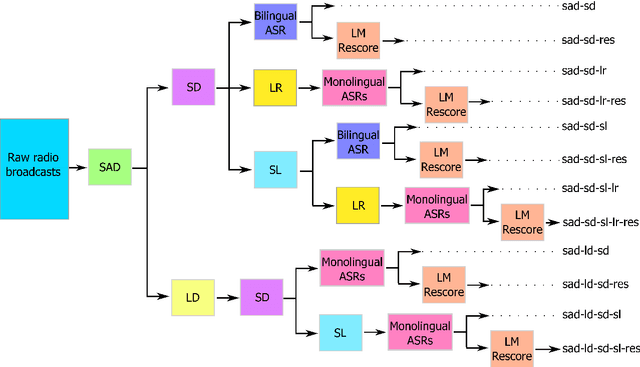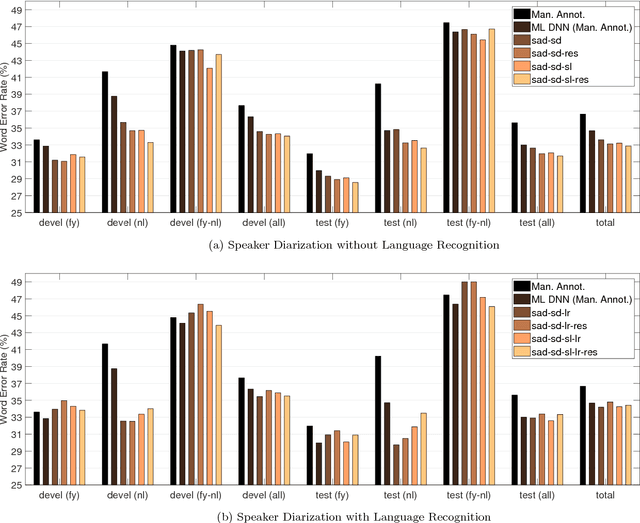Semi-supervised acoustic model training for speech with code-switching
Paper and Code
Oct 23, 2018



In the FAME! project, we aim to develop an automatic speech recognition (ASR) system for Frisian-Dutch code-switching (CS) speech extracted from the archives of a local broadcaster with the ultimate goal of building a spoken document retrieval system. Unlike Dutch, Frisian is a low-resourced language with a very limited amount of manually annotated speech data. In this paper, we describe several automatic annotation approaches to enable using of a large amount of raw bilingual broadcast data for acoustic model training in a semi-supervised setting. Previously, it has been shown that the best-performing ASR system is obtained by two-stage multilingual deep neural network (DNN) training using 11 hours of manually annotated CS speech (reference) data together with speech data from other high-resourced languages. We compare the quality of transcriptions provided by this bilingual ASR system with several other approaches that use a language recognition system for assigning language labels to raw speech segments at the front-end and using monolingual ASR resources for transcription. We further investigate automatic annotation of the speakers appearing in the raw broadcast data by first labeling with (pseudo) speaker tags using a speaker diarization system and then linking to the known speakers appearing in the reference data using a speaker recognition system. These speaker labels are essential for speaker-adaptive training in the proposed setting. We train acoustic models using the manually and automatically annotated data and run recognition experiments on the development and test data of the FAME! speech corpus to quantify the quality of the automatic annotations. The ASR and CS detection results demonstrate the potential of using automatic language and speaker tagging in semi-supervised bilingual acoustic model training.
 Add to Chrome
Add to Chrome Add to Firefox
Add to Firefox Add to Edge
Add to Edge